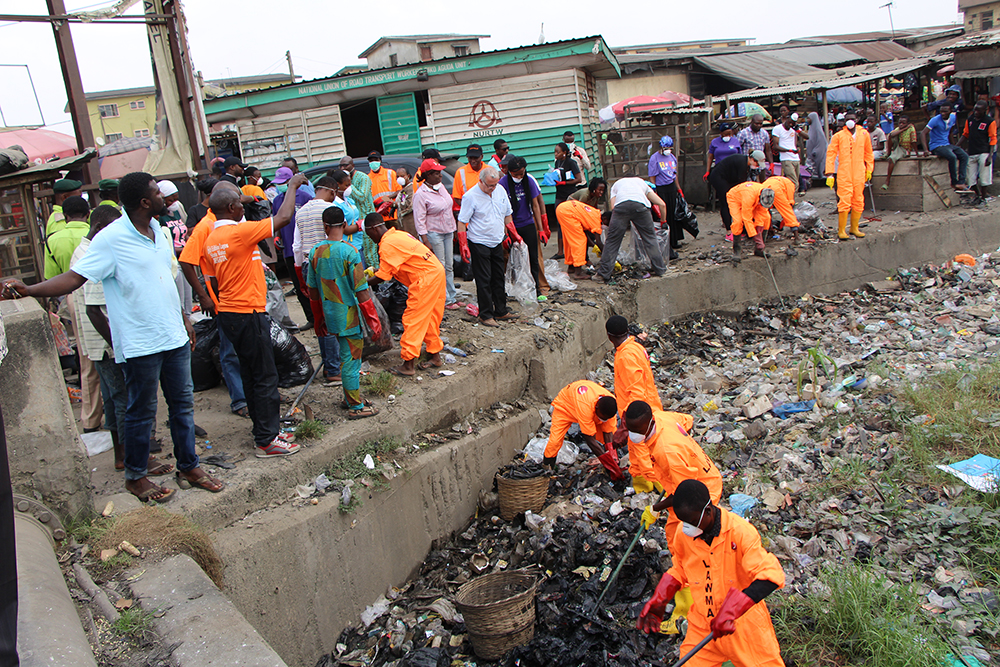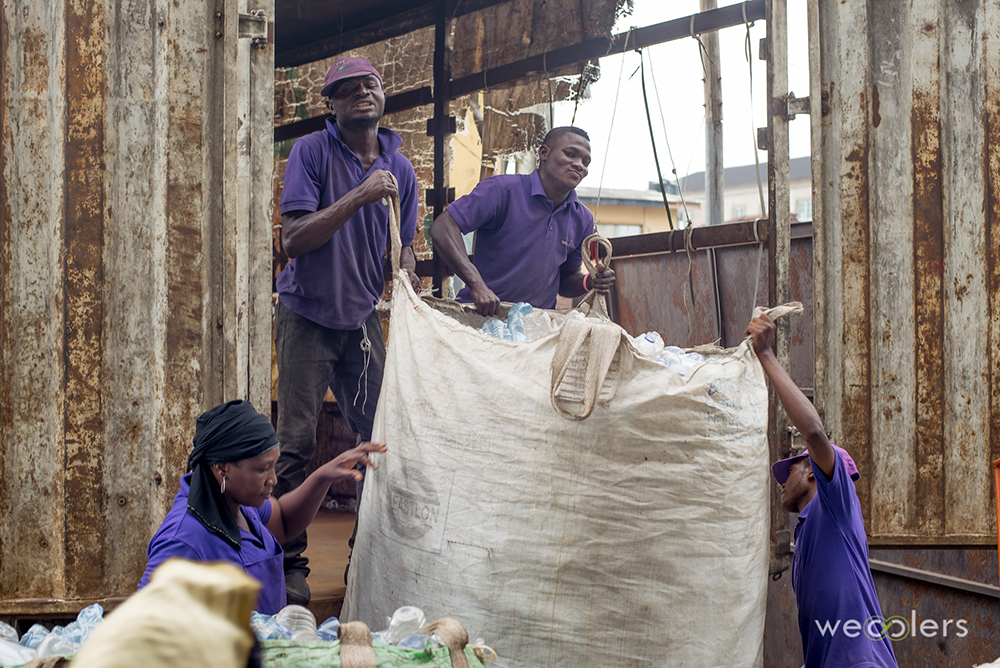
Citizen Solutions will Transform the Developing World
March 22, 2017 — Blog
Cities in developing countries like Nigeria and India have a lot in common. They are dealing with the challenge of growing populations that put pressure on public services and physical infrastructure, and the municipal governments in these cities face significant resource constraints.
These conditions offer opportunities for social entrepreneurs and community-based groups to provide citizen-led interventions. They can develop solutions that fill the void when services are non-existent, or provide alternative or complementary offerings where pre-existing services are available.
Can these entrepreneurial, citizen-led initiatives be sustainable in situations where there are gaps in services and government resources are limited? At Wecyclers, we think the answer is yes — particularly if these initiatives focus on solving important problems, utilize external support, embrace new technology and engage with the government.
Focus on the solution
First, it is essential that entrepreneurial initiatives remain focused on their mission. They must concentrate on meeting needs and solving problems that led to their creation in the first place. In an age of urban tech, startups and ‘disruption’, a startup’s mission is the basis of their value. Staying focused on this objective also helps to ensure that scarce resources are well allocated. Wecyclers was born in response to the urban waste crisis in Lagos, maintaining the mission of incentivizing waste collection and increasing the amount of waste recycled across Nigerian cities. Wecyclers now creates tangible value for households at the bottom of the economic pyramid based on the waste they produce.
Our founders discovered that up to half of the waste generated in Lagos was not formally collected and that less than 20% of recyclable waste was being diverted from landfills. They focused on solving this problem by designing a model that benefits households in affected communities. This constant focus led to the creation of household collection services, company recycling programs and clean-up exercises that have helped to improve the health of the environment by recycling 3,000 metric tons of waste, provided goods and cash incentives to low-income households and created over 100 jobs in waste recycling.

Harness external support
Second, the support from private sector organizations, including companies and NGOs, contribute to the sustainability of entrepreneurial, citizen-led initiatives by helping to increase their reach through advertising and awareness campaigns, capacity-building and leadership development programs and enabling capital investments. Wecyclers has benefitted from relationships with companies that believe in socially responsible business practices and NGOs focused on sustainable development. These organizations have helped to improve our visibility, enabled large-scale programs like clean-up days, and enhanced our management operations.
A recent cleanup campaign sponsored by DHL and Leadway Assurance attracted volunteers, community members, and state government representatives to conduct simultaneous cleanup exercises in Sango Ota (Ogun State), Bodija-Ibadan (Oyo State) and Ilashe Beach (Lagos State). The support from these companies made it possible to engage three separate communities in recycling efforts.
Embrace technology
Third, embracing new technology can increase the effectiveness of citizen-led initiatives by supporting community engagement, improving internal operations, and enabling adaptation to changing conditions. Technology is an essential part of Wecyclers. Our SMS platform enables us to update our customers on collection schedules, the quantity of materials they’ve recycled, and alert them to opportunities to redeem rewards for participating in our program.
Technology also enables our team to collaborate between our head office and collection hubs and to build and maintain relationships with our international partners. We also use social media to engage with the global community, educate our followers about recycling, share updates about our progress and outreach programs and keep updated with trends influencing our work.
Engage with government
Fourth, engaging with the Government contributes to the sustainability of citizen-led, entrepreneurial initiatives by facilitating operations, increasing credibility with customers and partners and creating collaborative opportunities for greater impact. Wecyclers has benefitted greatly from the Lagos State Government’s progressiveness and openness to working with organizations that provide solutions to Lagosians’ challenges. Finding common ground, where our work aligned with the Government’s vision for waste management in Lagos State was key.
Government support, for example, has helped expand Wecycler’s waste collection and processing services into two new local government areas, and create 120 new jobs and eight micro-enterprises to reach an additional 68,000 Lagosians. This investment also serves as a significant endorsement of the Wecyclers model – and the government of the fifth largest economy in Africa can set the pace for other Sub-Saharan cities to follow.
Our relationship with the Government also exemplifies the successful combination of top-down and bottom-up problem-solving approaches. The government drives policy and provides regulatory oversight while also empowering social enterprises to engage with communities and efficiently provide services on their behalf. With the right support, they are letting citizens lead the way in meeting immense needs in Lagos, while experimenting with new models for service delivery.

Social service startups
Additionally, entrepreneurial, citizen-led initiatives can function as social service startups. Operating at a startup scale provides the flexibility to test strategies and product offerings without the bureaucratic constraints that could prevent innovation in more established companies or government agencies. Startup-minded problem solvers can incorporate community feedback much faster to arrive at effective solutions. These types of startups attract people who are passionate and invested in addressing issues affecting their communities. This motivates them to overcome the obstacles faced by social entrepreneurship and develop solutions that fit into the context of their communities.
In the long-term, the goal of such startups is to solve the problems that spurred their creation so limited resources can be devoted to solving other problems. When most of Nigeria’s recyclable waste is diverted from landfills and being put into productive reuse, Wecyclers will be able focus our collective resources on other ways to improve the livelihood of low- and middle-income households and our natural environment.
Social enterprise and the future of citizen-led solutions
People are identifying problems and working on innovative solutions, if they are supported by their governments and are able to further develop these solutions, there will be enormous benefits for their communities and beyond. For example, support from the Lagos State government is enabling Wecyclers to have greater impact across the state. Eventually, increased support from international and multilateral organizations will allow us to spread our model across the globe.
Wecyclers is not the only social enterprise in Nigeria that has embraced this model. Sun Stretch Solar, LifeBank, Comprehensive Design Services, and Bridge International Academies are among the citizen-led social enterprises that demonstrate this model. These initiatives contribute to the democratization of access to services; provide residents of marginalized communities with needed alternatives; and when they are supported by the private sector or government, they could be scaled-up to meet the needs of larger portions of the urban community.
This process will spur meaningful and lasting development because the problems are being solved by those people who are most affected. They are truly citizen-led solutions. We believe that if more social enterprises are allowed to adopt this strategy, it will contribute to a paradigm shift, creating new blueprints for problem-solving across the developing world.